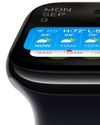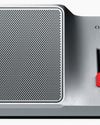As more products are getting homeKitfriendly, here’s how to set things up

Every manufacturer worth its salt seems to create its own unique way of addressing its own cabal of smart kit, whether it makes sense to do so or not. We’re given an unending stream of apps, each of which works slightly differently from the other. Apple’s HomeKit tech (which debuted in iOS 8) and companion Home app (iOS 10) are, in many ways, a solution to that mess, specifically made for Apple device owners.
It’s a consistent way for a wide range of smart kit to connect to a single common ecosystem. HomeKit compatibility means multiple accessories from multiple manufacturers can be administered in one place, while still being accessible from their usual control apps. That could mean Apple’s own Home app, recently ported to macOS Mojave, or a third-party app like Eve for HomeKit or HomeRun for Apple Watch. Setting up a network of HomeKit accessories means your smart home is controllable with Siri, too.
HomeKit also allows you to cook up a certain degree of interaction between those devices that wasn’t there before. A HomeKit-compatible motion sensor from one manufacturer can trigger a light from another. A light being switched on can cause a whole host of other lights to activate at the same time. A HomeKit door sensor, opened at a certain time of day, can switch off your heating, trigger a fan, and send a push notification to your phone or watch. It’s up to you – and HomeKit acts far faster than some other smart automation systems.
This story is from the March 2019 edition of MacFormat UK.
Start your 7-day Magzter GOLD free trial to access thousands of curated premium stories, and 9,000+ magazines and newspapers.
Already a subscriber ? Sign In
This story is from the March 2019 edition of MacFormat UK.
Start your 7-day Magzter GOLD free trial to access thousands of curated premium stories, and 9,000+ magazines and newspapers.
Already a subscriber? Sign In

Mac hardware
We help to solve your hardware hassles, from interrupted upgrades to running diagnostics

Give your iPhone a whole new look in iOS 18
Make your iPhone uniquely you

iPhone 16
Apple Intelligence-ready smartphone for the rest of us

Apple Watch Series 10
10th anniversary Watch is now slimmer with an even bigger display

AirPods 4
Apple's most affordable AirPods remain a brilliant buy

We. HEAR Pro
Room-filling sound from this stylish wireless speaker

HiDock H1
An impressive 11-port AI audio dock for conferencers

Adobe Premiere Elements 2025
Create eye-catching videos for sharing on social media

Photoshop 2024
Your imagination is the limit with this AI-powered pixel creator

Wispr Flow
Bring the power of AI dictation to DMs, documents and Discord chats